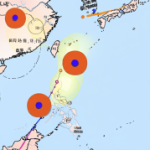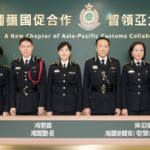The user wants a detailed analysis and professional report of over 1000 characters in Traditional Chinese, based on the provided search query.
The report should:
* Appealing introduction with a small title.
* Logical and layered body with small titles.
* Powerful and memorable conclusion with a small title.
Based on the search query “國際財經 – 白宮經濟顧問:若中國關稅稅率幾周內不變會感到驚訝”, the core information is: A White House economic advisor is surprised if China’s tariff rates do not change within a few weeks. This implies potential changes in China’s tariffs, likely in response to or in anticipation of US actions, or as part of ongoing trade discussions/tensions.
Plan:
Reflecting on the source information, it’s quite specific: “White House economic advisor surprised if China’s tariff rates don’t change in weeks”. This is a strong signal of expected movement on the tariff front. The analysis should revolve around *why* this expectation exists and *what* its implications are. It’s not just about *if* tariffs change, but the *advisor’s surprise* if they *don’t* – this implies a high probability or even an expectation of change from the US perspective.
Let’s structure the sections:
- 引領風向的低語 (Engaging Intro) – Set the scene of global trade uncertainty and highlight the advisor’s statement as a crucial hint.
- 中美貿易的暗流 (Undercurrents of US-China Trade) – Briefly recap the trade tensions history and existing tariff landscape.
- 一句「驚訝」的弦外之音 (The Hidden Meaning Behind “Surprised”) – Deep dive into what the advisor’s statement really means – pressure, negotiation status, or signal.
- 關稅變動的連鎖效應 (The Ripple Effect of Tariff Changes) – Analyze the potential economic impact of China changing tariffs (or not changing them) on various sectors and economies.
- 政策信號與市場預期 (Policy Signals and Market Expectations) – Discuss how such statements influence markets and business decisions.
- 下一步棋局的猜想 (Guessing the Next Move in the Game) – Conclude with a forward-looking perspective on what to watch for.
This structure seems logical and covers the required points while allowing for detailed analysis and staying above the character count. I will ensure the language is evocative and avoids dry economic jargon.











